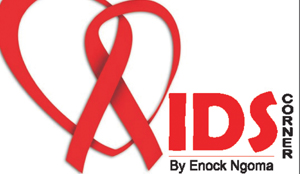 THIS week, I thought we should remind ourselves about a few facts about HIV and AIDS.
THIS week, I thought we should remind ourselves about a few facts about HIV and AIDS.
What is antiretroviral therapy?
Antiretroviral therapy (ART) is the use of HIV medicines to treat HIV infection. People on ART take a combination of HIV medicines (called an HIV regimen) every day.
ART is recommended for everyone infected with HIV. ART can’t cure HIV, but HIV medicines help people with HIV live longer, healthier lives. ART also reduces the risk of HIV transmission.
How do HIV medicines work?
HIV attacks and destroys the infection-fighting CD4 cells of the immune system. Loss of CD4 cells makes it hard for the body to fight off infections and certain HIV-related cancers.
HIV medicines prevent HIV from multiplying (making copies of itself), which reduces the amount of HIV in the body. Having less HIV in the body gives the immune system a chance to recover.
Even though there is still some HIV in the body, the immune system is strong enough to fight off infections and certain HIV-related cancers.
By reducing the amount of HIV in the body, HIV medicines also reduce the risk of HIV transmission.
When is it time to start taking HIV medicine?
People infected with HIV should start ART as soon as possible. In people with the following conditions, it’s especially important to start ART right away: pregnancy, AIDS, certain HIV-related illnesses and coinfections, and early HIV infection. (Early HIV infection is the period up to 6 months after infection with HIV.)
Read this AIDSinfo fact sheet to learn more about why it’s important for people with these conditions to start ART as soon as possible.
What HIV medicines are included in an HIV regimen?
There are many HIV medicines available to make up an HIV regimen. The HIV medicines are grouped into six drug classes according to how they fight HIV.
A person’s initial HIV regimen usually includes three or more HIV medicines from at least two different HIV drug classes.
Selection of an HIV regimen depends on several factors, including possible side effects of HIV medicines and potential drug interactions between medicines. Because the needs of people with HIV vary, there are several HIV regimens to choose from.
What are risks of taking HIV medicines?
Potential risks of ART include side effects from HIV medicines and drug interactions between HIV medicines or between HIV medicines and other medicines a person is taking. Poor adherence – not taking HIV medicines every day and exactly as prescribed—increases the risk of drug resistance and treatment failure.
Side effects
Side effects from HIV medicines can vary depending on the medicine and the person taking the medicine.
People taking the same HIV medicine can have very different side effects. Some side effects, for example, headache or occasional dizziness, may not be serious. Other side effects, such as swelling of the mouth and tongue or liver damage, can be life-threatening.
Drug interactions
HIV medicines can interact with other HIV medicines in an HIV regimen. They can also interact with other medicines that a person with HIV is taking. A drug interaction can reduce or increase a medicine’s effect on the body. Drug interactions can also cause unwanted side effects.
Drug resistance
When HIV multiplies in the body, the virus sometimes mutates (changes form) and makes variations of itself.
Variations of HIV that develop while a person is taking HIV medicines can lead to drug-resistant strains of HIV.
HIV medicines that previously controlled a person’s HIV are not effective against the new, drug-resistant HIV. In other words, the person’s HIV continues to multiply.
Poor adherence to an HIV regimen increases the risk of drug resistance and treatment failure.
This fact sheet is based on information from the following sources:
• From the Department of Health and Human Services: Guidelines for the Use of Antiretroviral Agents in HIV-1-Infected Adults and Adolescents
• From the Department of Veterans Affairs: Treatment Decisions
• From the National Institute of Allergy and Infectious Diseases: Treatment of HIV Infection
Comments: knoxngoma@gmail.com or call/text 0955883143






